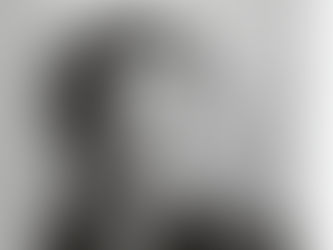Wicked Gloves: "I just want to do justice to the music and the emotions it carries"
- Editorial Staff
- Feb 26, 2025
- 4 min read
Updated: May 28, 2025

Seattle producer Wicked Gloves makes electronic dance music without genre limits, infusing a polyrhythmic and harmonic sense that borrows from jazz, rock, blues, and more. He thinks pop music is a way for people to connect around common experiences, feelings, and ideas. He tries to make music with popular appeal that is a bit different and more experimental than most songs you might hear on the radio or in a club. Self-titled debut LP "WICKED GLOVES" is set to debut on Spotify worldwide June 27th, 2025.
What are your main musical influences, and how have they shaped your unique style?
The first CD I bought was Europop by Eiffel 65, with their hit song "Blue (Da Ba Dee)", in 1999. My mom took me to a store to buy it, and now that feels like another era. But that album really made me love electronic dance music – also Aquarium by Aqua from 1997. Then I grew up and got into a lot of classic rock and new wave music – my parents had a record collection from the 1970s and 80s – and I started listening to bands that blended drums and guitar with synthesizers. My favorite band from that era is Rush. Their best songs are very complex but still catchy. While attending college, I got back into electronic music again, as well as indie and alternative rock. The late 2000s and early 2010s were an amazing time for what I think of as "millennial new wave" music – a revival of sensibilities that defined classic new wave like Depeche Mode, blending dance with rock music, synth with guitar. Some of my favorite artists of that era are Foals, Tame Impala, Crystal Castles, Passion Pit, M83, and MGMT. I played guitar in my high school jazz band but never listened to jazz much until a few years ago, and now I love it. I have huge respect for contemporary jazz fusion bassists like Mohini Dey. I’m sure that jazz fusion bass playing has heavily influenced my techno basslines.
Can you tell us about your recent single "ECLIPSE" in collaboration with Odarka? What was the inspiration behind this track?
I was getting really into techno, hearing so much great techno every day on SoundCloud, and I’d just made two techno tracks which were okay, but not really as catchy and melodic as I wanted. And about a month before, I made sort of a progressive house version of "Eclipse" using the same vocal track, but again my production there was just okay. I never felt like it did Odarka’s amazing vocals proper justice. So I was determined to try again, but this time with a melodic techno vibe, sounding as powerful and spacious as I could manage, ready for a rave or the mainstage at a festival. And I think my production blends well and highlights Odarka’s remarkable vocal performance here.
You use a variety of digital tools in your music production, such as FL Studio and software synthesizers. How do you decide which tools to use for each project?
I have a few FL Studio project templates that I like to use as starting points. Sometimes I want a fresh sound, so I start with an empty project. I save up synthesizer and effect presets, so I can sprinkle them into a fresh project to get some immediate consistency with other tracks without sounding too similar. I like reusing sounds to give my music the feeling that it was “played by the same band”. I try to be careful not to reuse too much – but it’s hard. It doesn’t always work out how I want. It’s a balancing act between nostalgia and innovation.
You've mentioned that you're not a DJ but love DJs. How does this distinction influence your approach to music creation and live performances?
I don’t perform or record anything live in most of my tracks. I use a mouse to draw every part into FL Studio’s piano roll and playlist. But, before I start producing a song I often play the melody and bass parts on a piano, by hand. And when producing I try to finish each track fairly quickly, in a few sessions of work, working on a section and playing it back to revise and layer on it, then adding more – a repetitive process of creating, listening, and editing. I find that not laboring over the production for too long gives a virtually programmed track more energy and "liveness". As for live performance, I haven’t played live since 2012, when I made my last album, an EP. I’m terrible at live performance and have no DJ skills. But I want to practice. I think it’d be really fun to play my new music in front of people who want to hear it.
With such a wide range of musical tastes, from EDM to rock, and jazz, how do you integrate these diverse genres into your compositions?
I try to listen to as much new music as possible, on SoundCloud especially, and then I let all those ideas inspire and echo in my work where they fit naturally. I just want to start with a good melody, a solid song, and then build the sounds and textures I hear around it, and let it evolve into whatever genres best fit the core melodies and rhythms of the song.
Follow Wicked Gloves

















